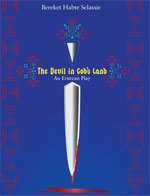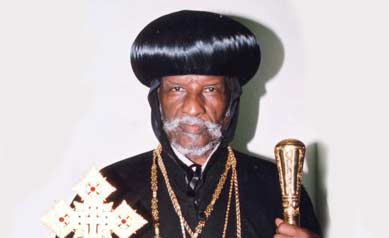Zenawi’s Mixed Legacy

Unlike his predecessor who was widely condemned for his failure, brutality and poor governance, the late Prime Minister of Ethiopia has a mixed review of his legacy and that is, frankly, an achievement we cannot ignore. Meles Zenawi has been praised for his economic and educational policies by almost everybody (at least those who matter and are investing in the country) and condemned for his human rights and freedom record by international organizations and Ethiopian opposition groups. One thing is for sure, Ethiopia is on a road it has never travelled before-the road of democracy. With all its flaws, Ethiopia is a country that officially recognizes the presence of opposition groups and allows a limited civic space for dissenting voices. In a region beset by tyranny, this little progress is to be celebrated.
The Ethiopian opposition has every right to push for more freedom, and it should do so, but, it has to first recognize that Meles was the first Ethiopian leader in over 100 years to usher in democratic governance. If only the regime in Asmera, would allow half of what the Ethiopian government has allowed in Ethiopia, things would have been much better in Eritrea. Eritreans long for the day to see their opposition leaders fly in and out of Asmera like the Ethiopian opposition are doing right now in Ethiopia. This is not to undermine the difficulties Ethiopian oppositions are experiencing but to appreciate the little progress Ethiopia has made. Ethiopia has taken crucial democratic baby-steps and Meles deserves most of that credit.
Meles has been in power for 21 years and Ethiopia has more than a generation of its citizens who associate their country with a rule of one man and that, of course, cannot be a good thing. In this regard, Meles was not better than his counterparts in Eritrea and Sudan. Aside from the longevity-in-power he shares with Isaias and Bashir, Meles was, however, a different breed. He was an intellectual who values education; and one who earned an MBA and a Masters’ degree in economics while leading one of the most populous countries in Africa. He has successfully restored and, perhaps, even improved upon, Ethiopia’s international image that was savagely tarnished by Mengistu Hailemariam. Through his sheer intellect, excellent work ethic and diplomatic prowess, Meles has become the intellectual and moral leader of the continent. Africa has lost its most articulate spokesperson. In any continental and international settings, Meles was a representative any Ethiopian, in particular and any African in general can be proud of. He carried himself with diplomatic finesse and enhanced the image of Ethiopia and Africa in the process. Meles has raised the bar for future Ethiopian and African leaders and through his-life-example has proven that education matters.
A quick glance of the statements issued by African and world leaders attests to the importance of this small-sized man who had left giant footprints. He was born to an Ethiopian father and an Eritrean mother, in the famous city of Adwa, the scene of the 1896 battle of Adwa; and embodied the best and the worst of the Ethio-Eritrean culture. On one hand, he was a principled and resolute supporter of Eritrea’s independence, and on the other, he was, by refusing to comply with The Hague ruling, mostly responsible for the current stalemate between the two countries; a situation which has greatly exacerbated the political and economic situation in Eritrea. Some pro PFDJ Eritreans demonize him as anti-Eritrean and even as anti-Ethiopian and some in the opposition hail him as a staunch ally; but most Eritreans are ambivalent about him. Meles spoke poetically about the relationship between the Eritrean and Ethiopian people as “melamnti Hawi”, but also took unprecedented and draconian measures against Eritreans and Ethiopians of Eritrean origin when he deported them from their homes and deprived them of their livelihood. Two images of Meles Eritrean cannot easily reconcile.
We should not, however, look at Meles from an Eritrean and Ethiopian angle only. The man was much more than that; he was a continental and a global leader. He was a consummate world figure who spoke passionately for the developing world and championed the causes of the poor and those on the fringes of the global economy. The Inter-governmental Authority for Development (IGAD), for example, would never be the same without the leadership of Meles. It was the recognition of his contribution to regional and international peace that made Meles the recipient of the World Peace Prize. He had played a major role in the independence of South Sudan and downgrading the threat posed by Al Shabab to the Transitional Federal Government of Somalia and the Horn of Africa. The Rwandan government has honored Meles with its most prestigious metal, the “Umurinzi.” Even the African-American Entrepreneur Organization, Tabor 100 named Meles the “International Leader of the Year” in 2005.
In September 2005, the late PM Meles Zenawi received the Green Revolution award with a financial prize of $200,000 “in recognition of past accomplishments and encouragement to achieve economic development for the people of Ethiopia,” from the Norwegian Yara Foundation. Indicative of his austere, simple life, devotion to helping poor people and improve gender equality, Meles donated the entire amount to Fre-Addis Yesetoch Merha Mahiber, an Ethiopian women foundation that works “to empower girls through providing educational opportunities.” This image of Meles is not free from controversy; there are groups who accuse him of nepotism, embezzlement and corruption, but, I know people, Eritreans who know him and his family up-close and personal and swear how clean and noble he was. They describe him as a selfless and devoted leader who had not forgotten his “tegadalay” roots. A loyal friend who had not forgotten his fallen comrades, so much so, he had to take one of his friend’s name to honor him. Meles was baptized as Legesse.
Regardless of the testimonies of his personal character, Meles was an important figure and his early departure is cause for concern for all of us who care about the Horn of Africa. It is very unlikely that Ethiopia would produce, in the short-term, a leader who can fill the big void left by Meles. He was a rare leader who was comfortable with big ideas and the nitty-gritty of political practice. The son of Adwa and Adi-Quala is gone but I hope his big ideas of economic development, eradication of poverty and access to education thrive with his successors.
My condolences to his family and his nation, Ethiopia. May his soul rest in peace.



Awate Forum